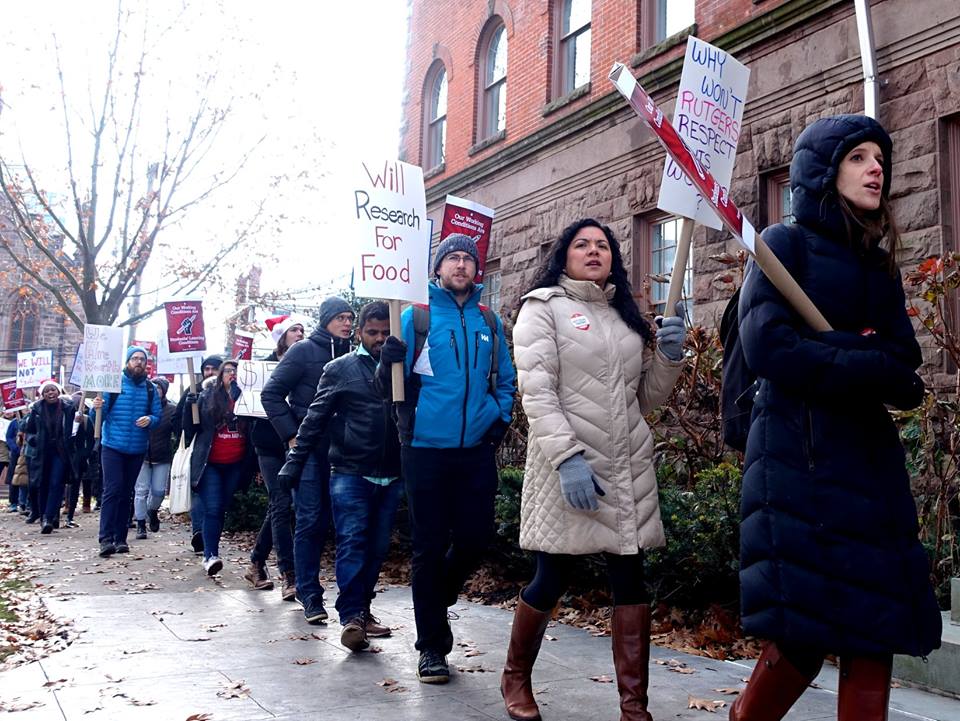Friends in the Bargaining for the Common Good network,
On behalf of Rutgers AAUP-AFT representing more than 8,000 faculty and graduate students, we want to thank you for your support and solidarity throughout our contract fight, and to share some of what we achieved. Our contract campaign kicked into gear with your help at the Bargaining for the Common Good in Higher Ed convening over a year ago, and we have been fighting at the bargaining table and in the streets ever since. At the very precipice of a strike, Rutgers finally conceded to a historic contract with equity, security and dignity.
Some highlights from this historic contract include:
- Equity Raises. For the first time in our almost 50-year history, our union has made it possible for women and faculty of color to obtain pay equity. The contract will also correct systematic disparities in pay between Rutgers’ two smaller campuses (in Camden and Newark) and the larger branch in New Brunswick.
- Gender and Race Equity. We also won $20 million for diversity hiring, and the creation of a committee composed equally of union members and management, charged with planning systematic changes to our University’s approach to gender, race and diversity
- Academic Freedom. For the first time in our history, academic freedom is recognized in our contract for all unit members and expressly applies to social media
- Protections against harassment and gender or race discrimination. We now have a guarantee of a workplace free of sexual harassment and stalking, enforced with binding arbitration.
We also brought a series of ‘common good’ demands to the bargaining table, including demands to freeze tuition and institute a $15 minimum student wage, as described in the NJ Spotlight article. Although we didn’t win these demands in our contract this time around, we are committed to continuing to fight alongside our community and student partners moving forward, and to continuing to build power to win ‘common good’ demands down the road.
“Unlike with previous contracts, the Rutgers faculty union took a ‘bargaining for the common good’ approach to negotiations that went beyond demanding raises. Unions across the country have started taking this approach, which addresses social justice issues that a broader community can rally around. Unionized faculties are really pushing the universities they work for to live up to their values, especially in the case of public universities, where they really need to serve the people of their state.” said Rebecca Givan, a Rutgers University associate professor of labor studies.
Thank you for all of your support.
In Unity,
Deepa Kumar (President) and David Hughes (Vice President)
Rutgers AAUP-AFT
